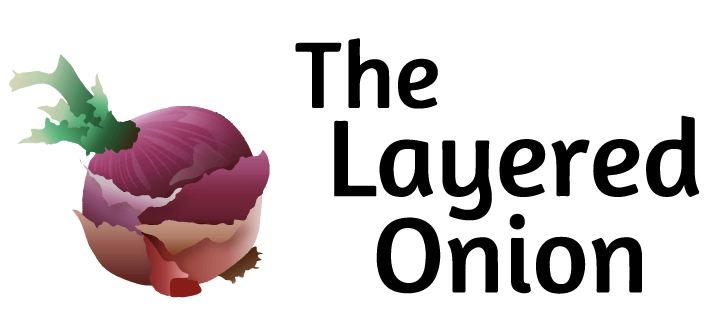The Shallot
The Layered Onion (TLO) proudly publishes The Shallot: Journal of Mental Health, Art, and Literature twice a year in partnership with the Dane County Food Collective (DCFC), supported by Dane Buy Local and a grant from Dane Arts. Available as part of artist membership or supporter tiers!

Submission Information
We are not currently open for submissions. Our next submission period will open in June 2024, date TBD.
How to Submit to The Shallot
- How
- On our submission page via Duosuma: here. It will open for submissions on the date listed above (as open calls go live).
- The Shallot is open to artists with lived mental and emotional health experiences.
- What we publish
- Submit a piece of work inspired by or related to this edition’s prompt.
Vol. 3, No. 1 – Previous Prompt: “If They Only Knew”
Your work for this issue should relate to the below prompt:
“If They Only Knew”
Up before the sunrise, tired bodies rise to work the land. Farmers cultivate year-round, sowing seeds, raising livestock, harvesting, and putting the land back to rest. A hard day’s work, a hard season’s work, bleeds into the next. Little magic moments accent the experience and make a hard job worth doing.
But what happens to the fruits of agricultural labor? They will travel to someone’s table, of course.
At a bustling local restaurant, a server takes a moment to themselves in a back hallway between serving tables. Deep breath in. Deep breath out. Ready, the server turns out of the hallway, a bright smile now visible on their face as they approach a patron. If only they knew what all went into their meal!
We’re all made of layers that we use to protect ourselves from being overwhelmed. If they only knew what our lives were like—our joys, struggles, little magic moments, insurmountable challenges, and unbelievable highs—the tapestry of our lived experience.
In this work, open the door to a behind-the-scenes space. Tell the audience something you wish they knew. Share your vision through writing, visual art, or creative recipes.
Submission Guidelines
- Two visual and two written submissions per artist at this time for a maximum of four submissions. You can submit multiple pieces in the same entry.
- Submissions can include:
- Nonfiction
- Fiction
- Poetry
- Drama
- Experimental
- Creative Recipes
- Visual Art
- Please provide high-resolution files for artwork. Images need to be at a minimum of 150 pixels per inch (PPI) at 5”x7” (though 356 PPI or higher is preferred). Lower resolutions WILL NOT be accepted.
- Artwork should be photographed on a plain background so the focus stays on your piece. Submissions should be cropped to just the piece itself (not including artwork, table, etc., unless an intentional part of the composition). For artists photographing sculptures or other 3-D prints, we prefer simple, neutral, solid-colored backgrounds.
- Written work should be no longer than 1000 words.
- Submissions can include:
- NO submission fees.
- Bio
- Always include a third-person author/artist/professional bio. The bio should be at least 1-2 sentences and up to 50 words. 450-500 characters maximum. More extended bios will not be accepted.
- Note: There is a question for a more extended bio in this round of submissions. We may or may not continue this forward.
- We will publish the bio, your pronouns, and links to your social media that you include.
- We reserve the right to make grammatical changes while copyediting, but you will get to approve the final version.
- Always include a third-person author/artist/professional bio. The bio should be at least 1-2 sentences and up to 50 words. 450-500 characters maximum. More extended bios will not be accepted.
- Questions
- Answer all required questions in the submission system.
- You must be 18 years of age or older to enter.
-
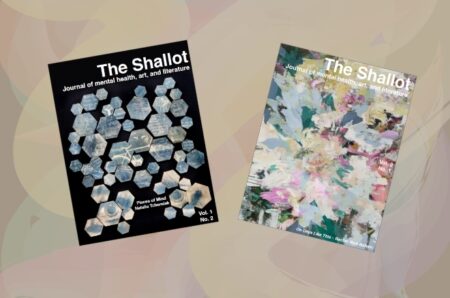 The Shallot Yearly Subscription + Bonus Issue$95.00
The Shallot Yearly Subscription + Bonus Issue$95.00 -
Product on sale
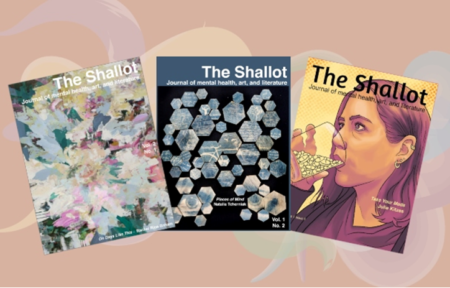 The Shallot Digital BundleOriginal price was: $80.00.$40.00Current price is: $40.00.
The Shallot Digital BundleOriginal price was: $80.00.$40.00Current price is: $40.00. -
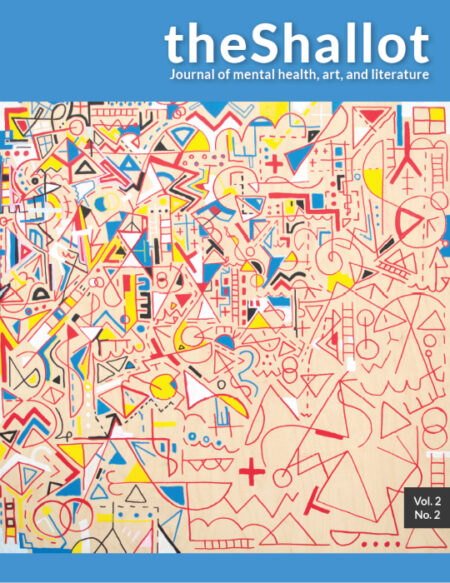 The Shallot Volume 2, Issue #2 – Print$35.00
The Shallot Volume 2, Issue #2 – Print$35.00 -
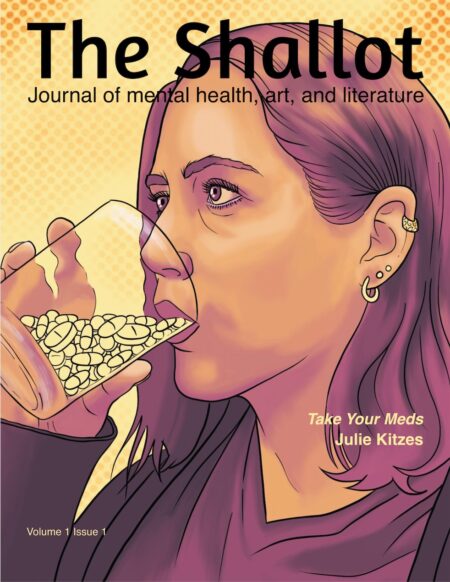 The Shallot Volume 1, Issue #1 – Print$35.00
The Shallot Volume 1, Issue #1 – Print$35.00 -
 The Shallot Volume 2, Issue #2 – DIGITAL$20.00
The Shallot Volume 2, Issue #2 – DIGITAL$20.00 -
Product on sale
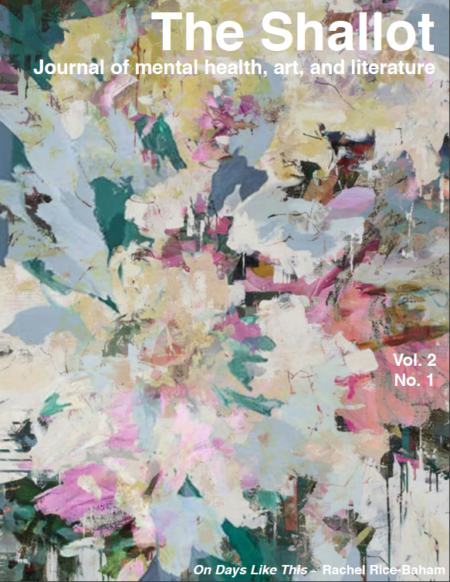 The Shallot Volume 2, Issue #1 – PrintOriginal price was: $35.00.$12.00Current price is: $12.00.
The Shallot Volume 2, Issue #1 – PrintOriginal price was: $35.00.$12.00Current price is: $12.00. -
Product on sale
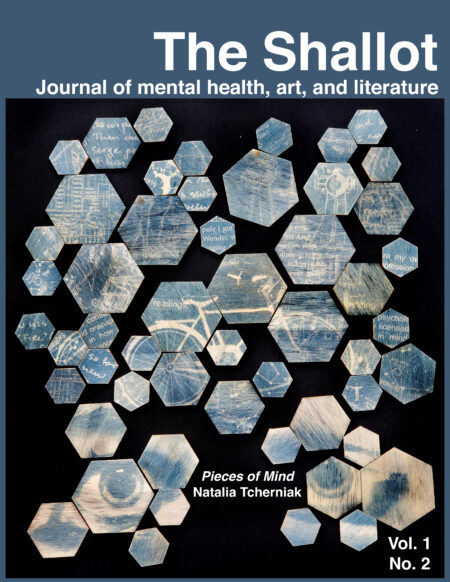 The Shallot Volume 1, Issue #2 – PrintOriginal price was: $35.00.$12.00Current price is: $12.00.
The Shallot Volume 1, Issue #2 – PrintOriginal price was: $35.00.$12.00Current price is: $12.00. -
Product on sale
 The Shallot Volume 2, Issue #1 – DIGITALOriginal price was: $20.00.$10.00Current price is: $10.00.
The Shallot Volume 2, Issue #1 – DIGITALOriginal price was: $20.00.$10.00Current price is: $10.00. -
Product on sale
 The Shallot Volume 1, Issue #2 – DIGITALOriginal price was: $20.00.$10.00Current price is: $10.00.
The Shallot Volume 1, Issue #2 – DIGITALOriginal price was: $20.00.$10.00Current price is: $10.00. -
Product on sale
 The Shallot Volume 1, Issue #1 – DIGITALOriginal price was: $20.00.$10.00Current price is: $10.00.
The Shallot Volume 1, Issue #1 – DIGITALOriginal price was: $20.00.$10.00Current price is: $10.00.
Other Information on The Shallot
- Rights
- Writers and artists retain copyright, but The Layered Onion requests that you ask us before republishing your content. If it is republished, please ensure the second publication provides credit and links back to The Layered Onion, indicating that TLO was the first to publish.
- Payment
- Accepted artists will choose between an honorarium (currently $15) or an artist’s copy of the journal.
- Sharing Your Work in The Shallot
- Your work may be included in promotional material on TLO social media, always giving you credit. The Layered Onion collection may be sold in the TLO shop.
Council of Literary Magazines and Presses Contest Code of Ethics
The Shallot endorses and abides by the Code of Ethics developed by the Council of Literary Magazines and Presses (CLMP):
The Community of Literary Magazines and Presses believes that ethical contests serve our shared goal: to connect writers and readers by publishing exceptional writing. Intent to act ethically, clarity of guidelines, and transparency of process form the foundation of an ethical contest. To that end, we agree:
- to conduct our contests as ethically as possible and to address any unethical behavior on the part of our readers, judges, or editors;
- to provide clear and specific contest guidelines—defining conflict of interest for all parties involved; and
- to make the mechanics of our selection process available to the public.
Selection Process
Once the submission process has closed, our managing editor takes all of the submissions and organizes them for our volunteer reviewers. We do not use a blind submission process; our reasoning for this is in the below section. Each reviewer (up to 15 per review cycle) will make notes and comments and then vote yes or no for each submission. Some submissions may fall in between these, in those cases a reviewer will choose the closest choice and make note as to their decision for our submission review meeting.
At the submission review meeting, we’ll discuss all pieces that received the majority of yes votes and reconcile them to the amount of pages we have available to publish. We also will argue for any standout pieces that may not have received the votes a reviewer thought a piece deserved. Perhaps other reviewers did not understand the nuances or cultural notes that elevated a piece. This is where our review process stands out – we often discuss nearly every submission (or as many as we can) to ensure all artists and authors get due consideration.
Where we really love pieces, but they are not a fit for our journal for whatever reason (do not quite fit with the flow of the theme for themed issues, etc.), we may offer guest blog posts or other items to elevate author voices where we can.
Why We Do Not Use Blind Submissions + Other Ethical Notes
We do not use a blind submission process for the below reasons. Though blind submissions have traditionally been thought to level the playing field for disadvantaged writers and artists, as Joyce Chen points out in her insightful article on reconsidering blind submissions, it often reinforces the same barriers it strives to knock down and upholds the hierarchies of power that we are familiar with.
To quote Chen, “And how often do we discount work because it feels too “unpolished,” built around a solid core of a story but with a few loose ends that could benefit from the insightful feedback of an editor or even just an encouraging comment or two from a sharp-eyed colleague? Are we thinking about the hurdles that some writers face to even submit their work in the first place? Writers who haven’t had the opportunity to share their work with a supportive community, or to workshop a piece, or to go through several rounds of revisions, likely won’t present as polished an essay or poem as a more privileged writer. What could that essay or poem turn into with a little encouragement, a little editing—if only they get a shot?
In other words, without any context about the writer themselves, how can we fully understand the import or shortcomings of a piece? “
At The Shallot, we’re striving to create a supportive process, starting with curating reviewers from all backgrounds and walks of life. If a piece has potential, but could benefit from feedback, we’ll consider acceptance and offer suggestions as we can. Ultimately, it’s the author’s work and we respect that, and we are proud to publish pieces that are exploring what it means to write, to paint, to make.
As a unique publication geared towards an underserved population, we do allow our submission reviewers to enter. In order to create an ethical and clear process, we require any reviewers who would like to pursue this to speak with the managing editor prior to submitting so the editor can manage the submission through the process with care. The reviewer will need to submit their piece using a pseudonym and they may not vote for their own submission. If selected for publication, the piece will be published under the reviewer’s intended name. In our case, we believe this to be fair to our publication, submission, and readers due to our broad pool of submission reviewers, as we do not use one or several judges alone.
As stated above, we vow to conduct this contest as ethically as possible. If you have any concerns regarding this matter, either before, or after the winners have been announced, please contact us directly.
We can best be reached via email at contact @ thelayeredonion.com.
